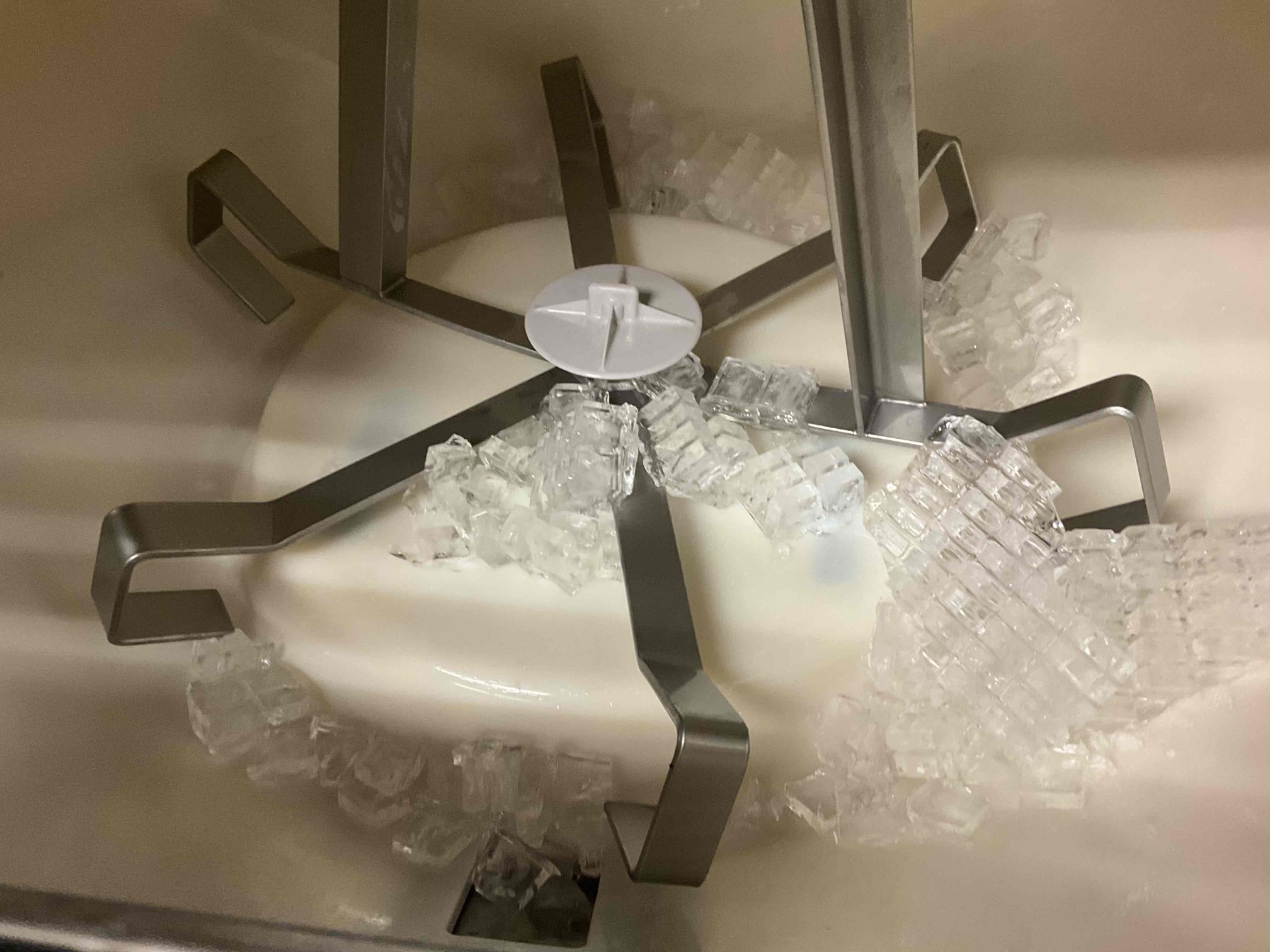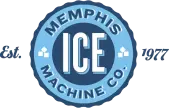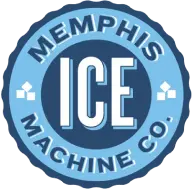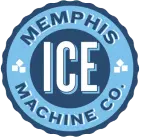proudly serving
the mid-south
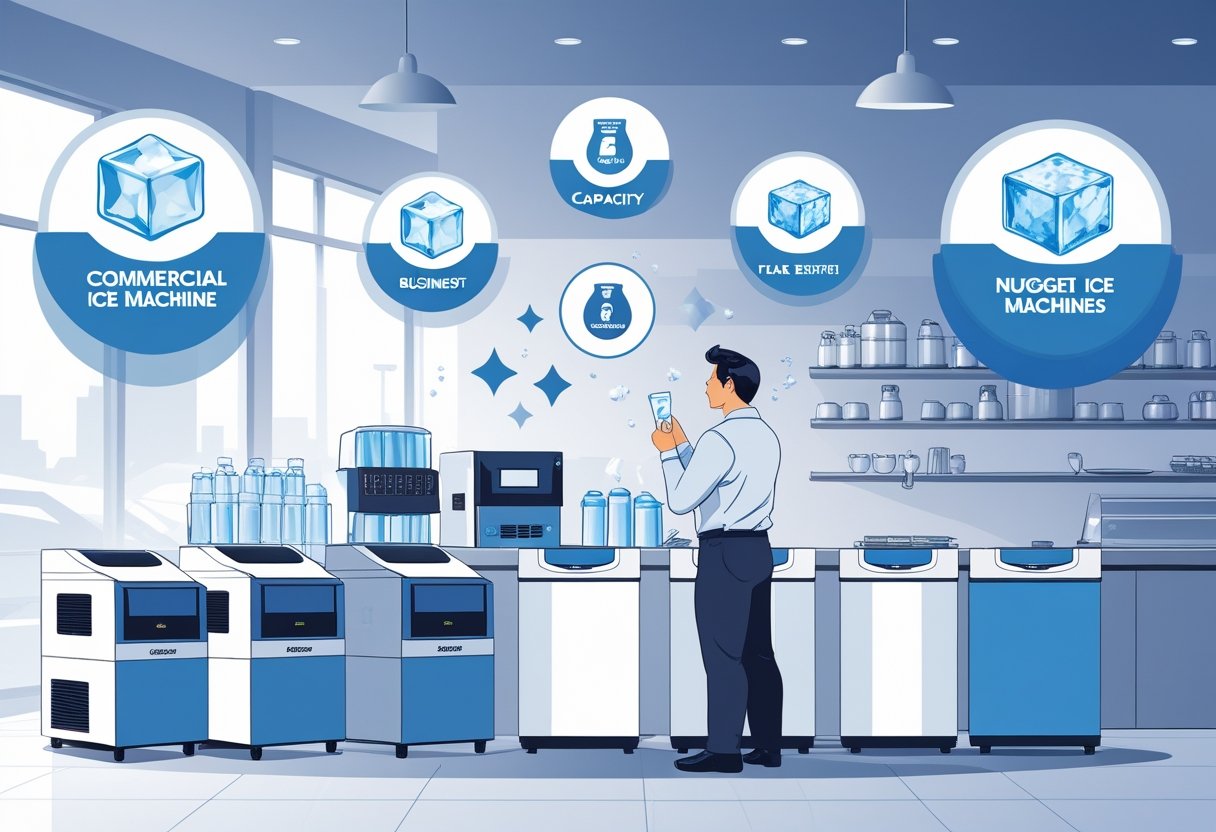
How to Choose the Right Commercial Ice Machine for Your Business Needs
Choosing the right commercial ice machine means matching your specific business needs with the type, capacity, and efficiency of the machine. The best ice machine is one that reliably meets your daily ice demand while fitting your space and budget. Factors like ice type, production rate, and maintenance requirements all play a role in making the right choice.
At Memphis Ice, we understand how critical consistent ice production is for your operations, whether you run a busy restaurant, bar, or healthcare facility. With 49 years of experience serving the Mid-South, we help you focus on your business by ensuring your ice machine is never a problem.
Before you invest, consider your storage options, energy efficiency, and the environment where the machine will operate. This straightforward approach will save you time and unexpected costs, making your selection process smoother and more effective.
Determining Your Ice Production and Storage Needs
To choose the right commercial ice machine, you need to understand exactly how much ice your business requires daily, how to handle your peak demand times, and how much ice storage capacity will keep operations running smoothly. This ensures you get a machine sized correctly for your workflow without overspending or risking shortages.
Assessing Daily Ice Requirements
Start by estimating the total amount of ice your business uses in a typical day. Consider all uses: drinks, food prep, display, or medical needs. For example, a busy restaurant might need 300-500 pounds of ice daily, while a small café might only need 100-200 pounds.
Calculate this by reviewing sales data, ice usage patterns, and the number of customers served. Don’t forget seasonal changes; summer months in Memphis can spike ice demand considerably. Getting this baseline right helps prevent overworking your machine or running out of ice during peak times.
Calculating Peak Demand
Your daily ice total isn’t enough; recognize when during the day or week demand peaks. Peak demand could be lunch rushes, weekend events, or hospital emergencies. Your ice machine must produce enough ice not only to meet average use but also these highest-demand periods.
Plan for peak production capacity to be about 20-30% higher than your average daily requirements. This buffer keeps your supply steady even during the busiest hours. Be aware that some machines can ramp up production faster, which can be vital if your business experiences sudden surges.
Understanding Storage Capacity
Ice storage capacity must be balanced with your production volume and daily use. Too little storage will force your machine to run constantly, increasing wear and energy costs. Too much storage can mean ice melts or takes up valuable space.
A good rule: your storage bin should hold 30-50% more ice than your peak hourly production. This avoids downtime and keeps ice available, especially in places like bars or hospitals where supply must remain uninterrupted. Think through your available space carefully to choose a unit that fits without crowding your work environment.
At Memphis Ice, we help local businesses match ice production and storage solutions precisely to their specific needs, ensuring reliable performance year-round. For advice tailored to your operation, talk to an expert today. You can also explore commercial ice machine options designed to keep your business running smoothly during the busiest times.
Learn more about how to match ice production and storage with your business needs at this comprehensive guide to choosing the right size commercial ice maker.
Types of Commercial Ice Machines
Choosing the right commercial ice machine starts with understanding the key styles available. Each type varies in size, installation method, and ice production capacity, so selecting one that fits your space and output needs is essential.
Modular vs. Self-Contained Units
Modular ice machines separate the ice-making head from the storage bin. This setup allows for more flexible placements, such as installing the machine above a large capacity bin or in tight spaces. Modular units typically require a remote condenser system, which can reduce noise and heat in your work area.
Self-contained machines combine the ice maker and storage bin into one unit. These are easier to install and more compact, making them ideal for businesses with limited space or lower ice demand. However, they often produce less ice compared to modular systems and can generate more noise.
If your business requires high-volume ice production with flexible installation, a modular system may suit you better. For smaller operations or tight spaces, self-contained units provide a straightforward solution.
Undercounter Models
Undercounter ice machines fit neatly under your countertop, maximizing workspace efficiency. They usually produce nugget, cube, or flake ice, which is suitable for bars, cafeterias, and small restaurants.
These models generally offer moderate ice output, often ranging from 50 to 200 pounds per day. Because of their size, they’re designed for businesses that need a reliable but not industrial-scale supply. Undercounter units are easy to maintain and provide quick ice access during busy service times.
Installing an undercounter model eliminates floor space concerns while keeping ice within reach. This type suits you if your operation balances space constraints without sacrificing steady ice availability.
Countertop Ice Makers
Countertop ice machines are among the smallest commercial ice makers available. Their portability allows them to fit on bars, prep stations, or small coffee shops with minimal space. These machines usually produce 20 to 50 pounds of ice daily.
Because their size limits production capacity, countertop models are best for light-use environments or as backup units during peak demand. They typically use self-contained refrigeration systems and require minimal installation effort.
If you need a compact, accessible ice source without a high volume requirement, a countertop ice maker could be the right fit. Memphis Ice can help you explore options that suit your layout and ice needs efficiently.
For more detailed guidance on choosing the best commercial ice machine type for your business, explore the comprehensive information at the Ultimate Guide to Choosing the Right Commercial Ice Machine.
Selecting the Ideal Ice Shape
Choosing the right ice shape impacts how your ice machine performs and how your customers or staff use the ice. Different shapes suit different applications, from beverage cooling to food preservation. Your decision should consider factors like melting rate, ease of chewing, and machine capacity.
Cube Ice
Cube ice is the most common shape you’ll find in commercial settings. It is firm and dense, holding its shape well, which makes it ideal for slow-melting ice cubes in drinks. Cubes come in full, half, or large sizes, allowing customization to beverage needs.
Cubes work best for bars, restaurants, and cafés because they chill without diluting drinks too quickly. Their solid structure also makes them easy to handle and stack in dispensers. If you want a versatile, high-utility ice shape that covers multiple uses, cubes are a reliable option.
Nugget Ice
Nugget ice, often called “chewable ice,” is softer and more porous than cubes. It absorbs flavors well and is easier to chew, making it popular in healthcare, convenience stores, and casual dining. This ice shape enhances customer experience where texture matters.
Nuggets cool quickly because of their increased surface area but melt faster than cubes. Your ice machine must be sized to keep up with demand, particularly during busy periods. Nugget ice machines often use less energy, lowering operating costs without sacrificing production efficiency.
Flake Ice
Flake ice is thin, soft, and irregular, often used for food display and preservation. It conforms well to surfaces, providing better coverage for seafood, produce, and deli items. Flake ice is also favored in medical settings where gentle cooling is required.
This ice melts quickly due to its shape and thinness, so machines producing flake ice typically need constant refilling or large storage to maintain supply. Flake ice machines are ideal if you prioritize coverage and cooling efficiency over beverage use.
When selecting your ice shape, remember Memphis Ice’s experience can help tailor the right machine to your exact needs and environment. Talk to an expert today to ensure your ice matches your business demands.
For more detailed guidance on ice types, visit this commercial ice maker types guide.
Key Features and Technologies to Consider
Choosing the right commercial ice machine involves looking closely at its features that affect daily use and overall efficiency. Factors like energy consumption, water quality, noise output, and maintenance requirements play a critical role in how smoothly your operation runs and how much you spend over time.
Energy Efficiency
Energy efficiency directly impacts your operating costs. Look for machines with Energy Star certification or similar ratings, which guarantee lower electricity consumption without sacrificing ice production.
Consider machines that use advanced compressors and insulated storage bins to reduce power waste. Variable speed motors can adjust cooling output based on demand, saving energy during slower periods.
You should also check the machine’s kWh per 100 pounds of ice produced. The lower this number, the more cost-effective the unit will be in the long run. Choosing energy-efficient models helps your business reduce utility bills while staying environmentally responsible.
Filtration Systems
The water quality feeding your ice machine influences the purity and taste of the ice and affects the machine’s lifespan. Integrated water filtration systems are essential to remove minerals, chlorine, and sediment.
Some machines come with built-in filters, while others require an external filtration setup. You should consider the type of filter – carbon filters for chlorine reduction or reverse osmosis systems for higher purity.
Effective filtration reduces scale build-up, which minimizes maintenance needs and prevents damage to internal components. Regular filter replacement schedules also ensure consistent ice quality and reduce downtime.
Noise Levels
Commercial ice machines can produce noticeable noise, impacting the comfort of your workspace and customers. Noise levels vary based on the type of condenser and internal components.
Air-cooled units typically generate more sound compared to water-cooled or remote condenser models. If your machine will be located near customer areas or quiet environments, prioritize low-noise options.
Check manufacturer noise ratings expressed in decibels (dB). Units operating below 60 dB are generally quieter and less disruptive. Investing in quieter machines can improve your business atmosphere and reduce distractions.
Ease of Maintenance
Simplifying maintenance reduces downtime and repair costs. Machines with accessible components, tool-free panels, and clear diagnostic indicators make service tasks faster and less complicated.
Look for models designed with removable bin liners and self-cleaning features. These reduce manual labor and help maintain hygiene standards.
Regular maintenance, such as cleaning condensers and replacing filters, is crucial. Memphis Ice can support you with tailored service plans designed to keep your machine running smoothly throughout the year. Prioritizing ease of maintenance ensures your ice machine stays reliable when you need it most.
Installation, Space, and Environmental Requirements
Proper planning for your commercial ice machine installation starts with understanding space limitations, ventilation needs, and the availability of water, electrical connections, and drainage. Addressing these factors upfront prevents costly adjustments and ensures efficient, reliable operation.
Space and Ventilation Needs
Your ice machine requires adequate space not just for placement but also for maintenance access and airflow. Typically, you should leave at least 6 inches of clearance on all sides. This clearance helps prevent overheating and extends the machine’s lifespan.
Good ventilation is crucial. Commercial ice machines generate heat during operation, so installing them in an area with sufficient airflow reduces cooling demands. Avoid placing the machine near heat sources or in confined spaces without ventilation, which can cause performance issues.
If space is tight, consider a remote condenser model that places heat-generating parts away from the machine. Memphis Ice can help you assess these needs to fit your available space properly.
Water and Electrical Connections
Your ice machine must connect to a clean, potable water supply with consistent pressure. Water pressure typically needs to be between 20 and 80 psi for optimal operation. Installing a water filter or softener is often recommended to protect the machine from scale buildup.
Electrical requirements vary by unit size and type but usually demand a dedicated circuit. Most commercial machines require 115V or 208-230V power, with amperage depending on output capacity. Ensure your existing electrical system supports these needs to avoid overloads, with grounding per local electrical codes.
Confirm that wiring and breakers meet the manufacturer’s specifications. Memphis Ice technicians can verify compatibility and make any necessary electrical upgrades during installation.
Drainage Considerations
Effective drainage is vital due to the ice machine’s regular purge cycles, which discharge between 0.5 to 5 gallons of water periodically. You need a nearby floor drain capable of handling high volume to prevent water pooling and damage.
The drain should be within a few feet of the machine and slope downward to promote smooth flow. Avoid routing the drain through common customer or food prep areas to maintain sanitation.
For water-cooled condensers, additional drainage for condenser water is required, so check if your setup needs separate drains. Planning proper drainage reduces maintenance issues and helps keep your operation compliant with health regulations.
Memphis Ice is available to guide you through these installation and infrastructure details so your business stays cool without surprises.
Comparing Brands, Warranties, and Total Cost of Ownership
Choosing the right commercial ice machine means looking beyond just the upfront price. You’ll want to consider how reliable the brand is, what kind of warranty and service options come with the machine, and what your ongoing costs will look like over the years.
Evaluating Manufacturer Reputation
Reputation matters when investing in commercial ice machines. Brands with a long history of producing durable, efficient machines tend to be more trustworthy. Look for manufacturers known for consistent quality, energy efficiency, and parts availability.
Check customer reviews and industry feedback to gauge reliability. Strong after-sales support and easy access to replacement parts are signs of a reputable brand. A solid reputation reduces the risk of unexpected downtime, which is crucial for your business’ smooth operation.
Warranty and Service Options
Warranty coverage varies widely but is essential for protecting your investment. Typical warranties cover parts and labor for at least one year, with options to extend. Understand exactly what’s included—does the warranty cover compressor failure, electronic controls, or wear items like filters?
Service plans provide peace of mind by ensuring regular maintenance and prompt repairs. A good service partner, especially local to your area like Memphis Ice, can minimize downtime and keep your machine running efficiently. Ask about response times and whether on-site repairs are included.
Long-term Operating Costs
The total cost of ownership (TCO) includes more than the purchase price. You should factor in energy consumption, water usage, maintenance, and repair costs over the machine’s expected life. Machines with higher efficiency may cost more upfront but save money over time.
Depreciation and resale value may also affect your costs if you plan to upgrade later. Using tools like TCO calculators can clarify these costs before you buy. Balancing initial investment with ongoing expenses helps protect your budget and ensures long-term satisfaction with your ice machine. For more detailed insights, consider exploring how to evaluate product costs over time.
Frequently Asked Questions
Choosing the right commercial ice machine means understanding its capacity, type, efficiency, and upkeep needs. You also need to weigh factors like durability and cost to find the best fit for your business demands.
What factors should be considered when selecting an ice machine for commercial use?
Consider your daily ice demand, available space, and power source when selecting a machine. Think about energy efficiency and how the machine fits your operational workflow, including water availability and drainage.
How does the type of ice produced affect the choice of a commercial ice machine?
Different businesses require different ice shapes like cubes, nuggets, or flakes. The type impacts the machine size, production rate, and how the ice performs in drinks, food prep, or medical use.
What are the signs of a reliable and efficient commercial ice maker?
Look for steady production capacity, consistent ice quality, and models with good energy ratings. Reliable brands often offer solid warranties and have a proven track record with local service providers.
How do the maintenance needs influence the selection of a commercial ice machine?
Machines that are easy to clean and have accessible parts reduce downtime and service costs. Regular maintenance plans, such as those offered by Memphis Ice, ensure long-term reliability and compliance with health standards.
What is the expected lifespan of a high-quality commercial ice machine?
A well-maintained machine typically lasts 7 to 10 years. Lifespan varies by usage intensity, maintenance frequency, and environmental factors like temperature and humidity.
What are the cost considerations when purchasing a commercial ice machine?
Upfront costs include the machine price, installation, and any required modifications. Also factor in ongoing expenses like water usage, electricity, and maintenance. Balancing these will help you manage your budget effectively.
For tailored advice and support in Memphis and the Mid-South, contact Memphis Ice experts who know the local market and your industry needs.
Recent News

How Ice and Refrigeration Power Life-Saving Research
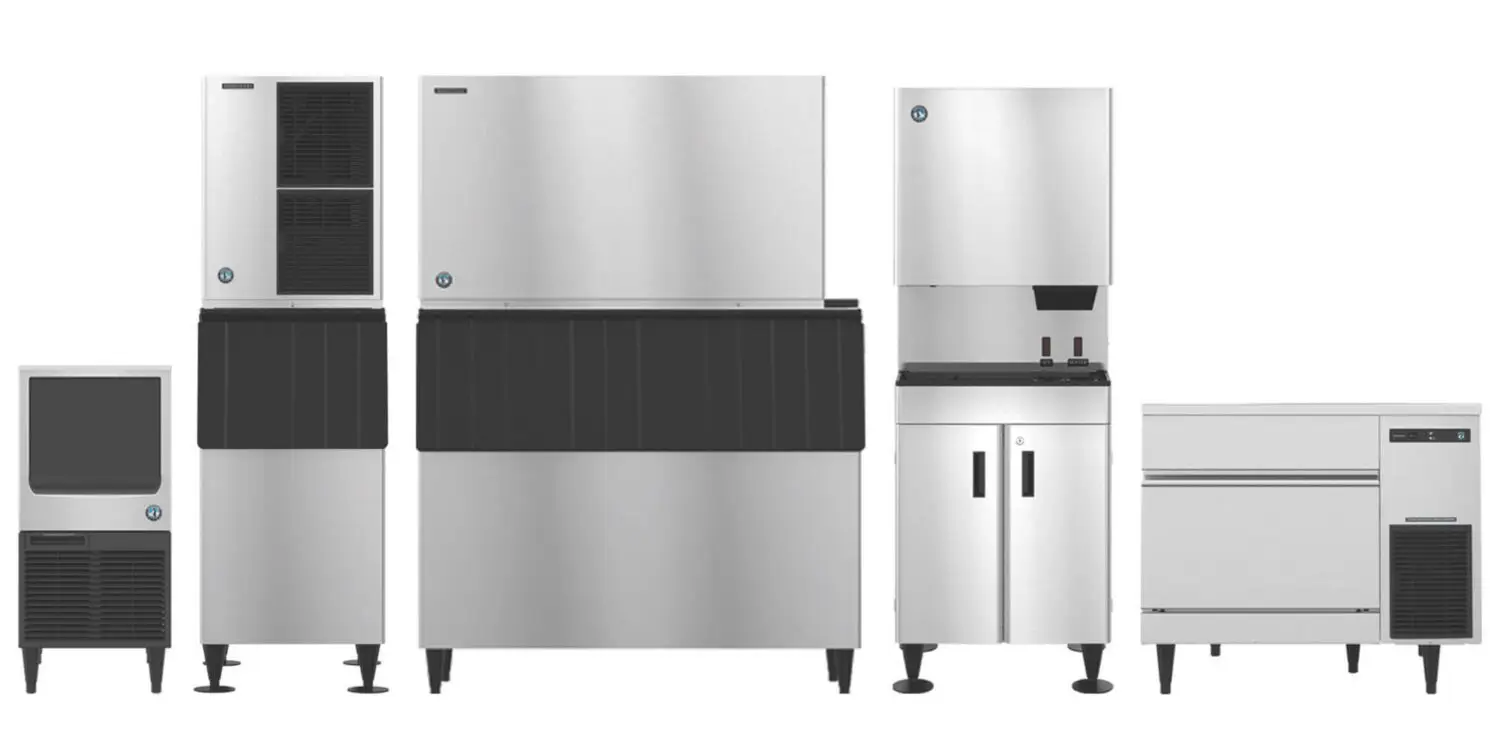
Healthcare Facility Ice Machine Servicing Tips for Reliable Cold Water
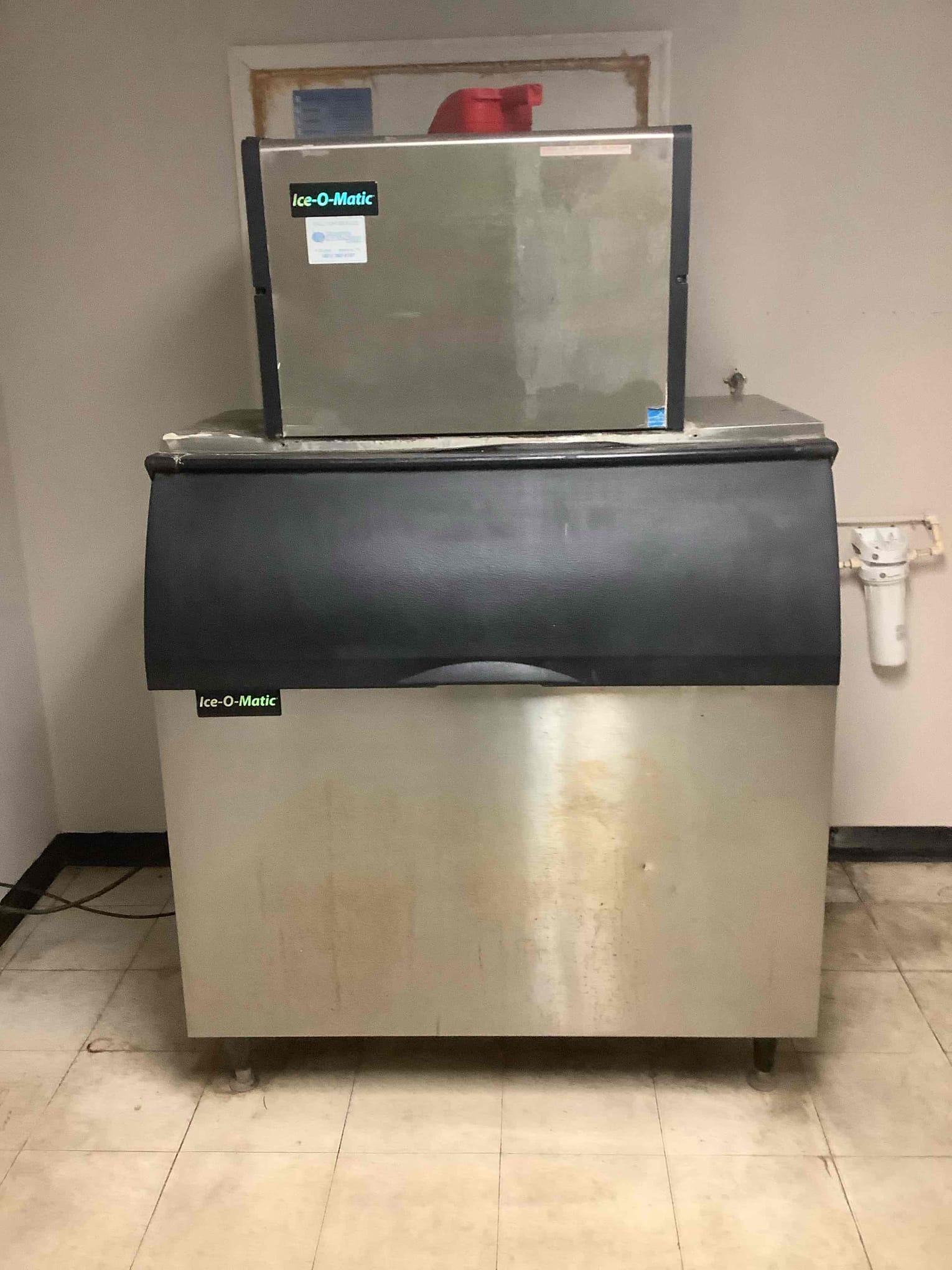
Factors That Impact Commercial Ice Machine Recovery Rate Explained Simply
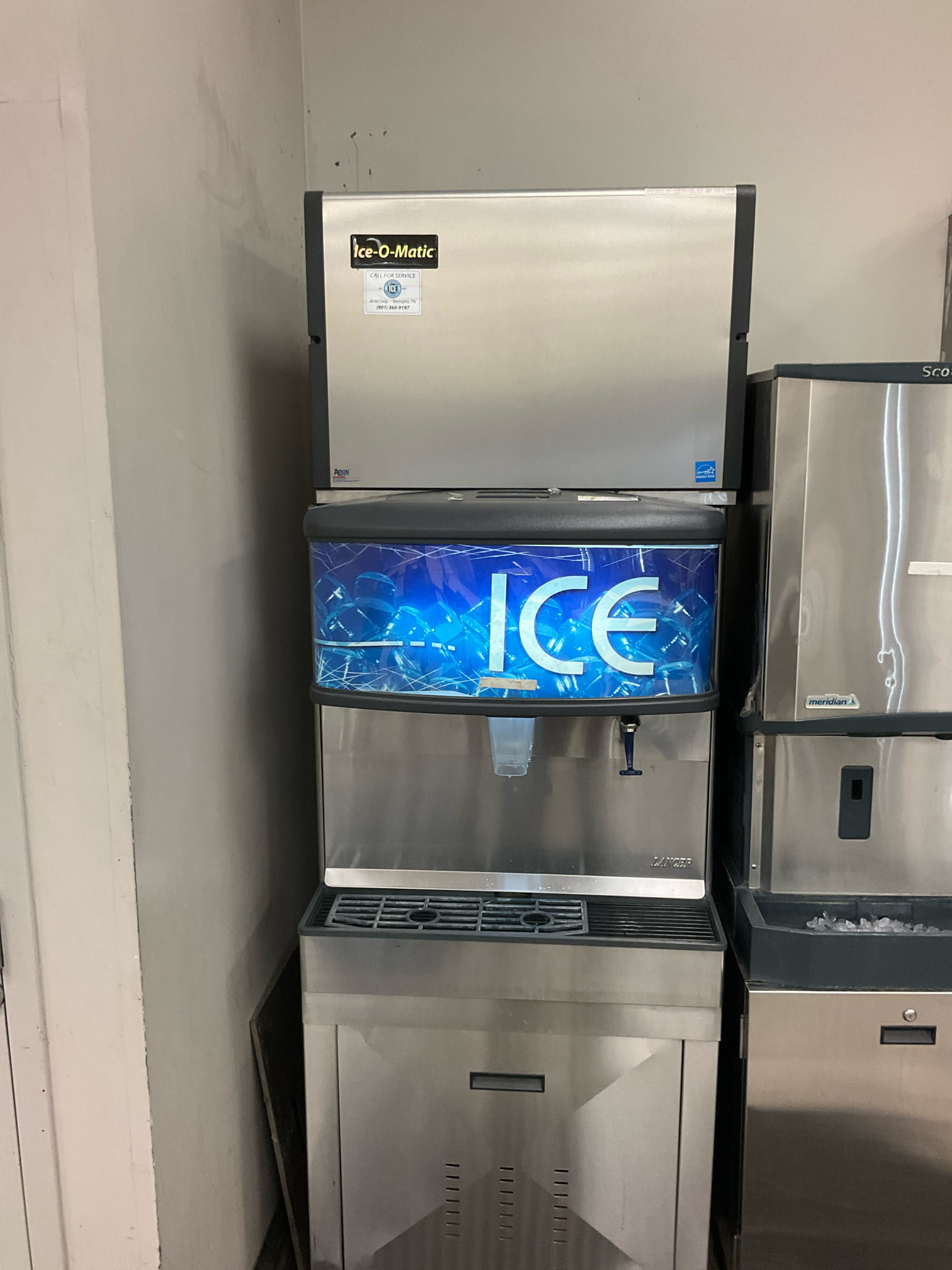
Signs Your Freezer Door Gaskets Need Replacement and How to Spot Them Early
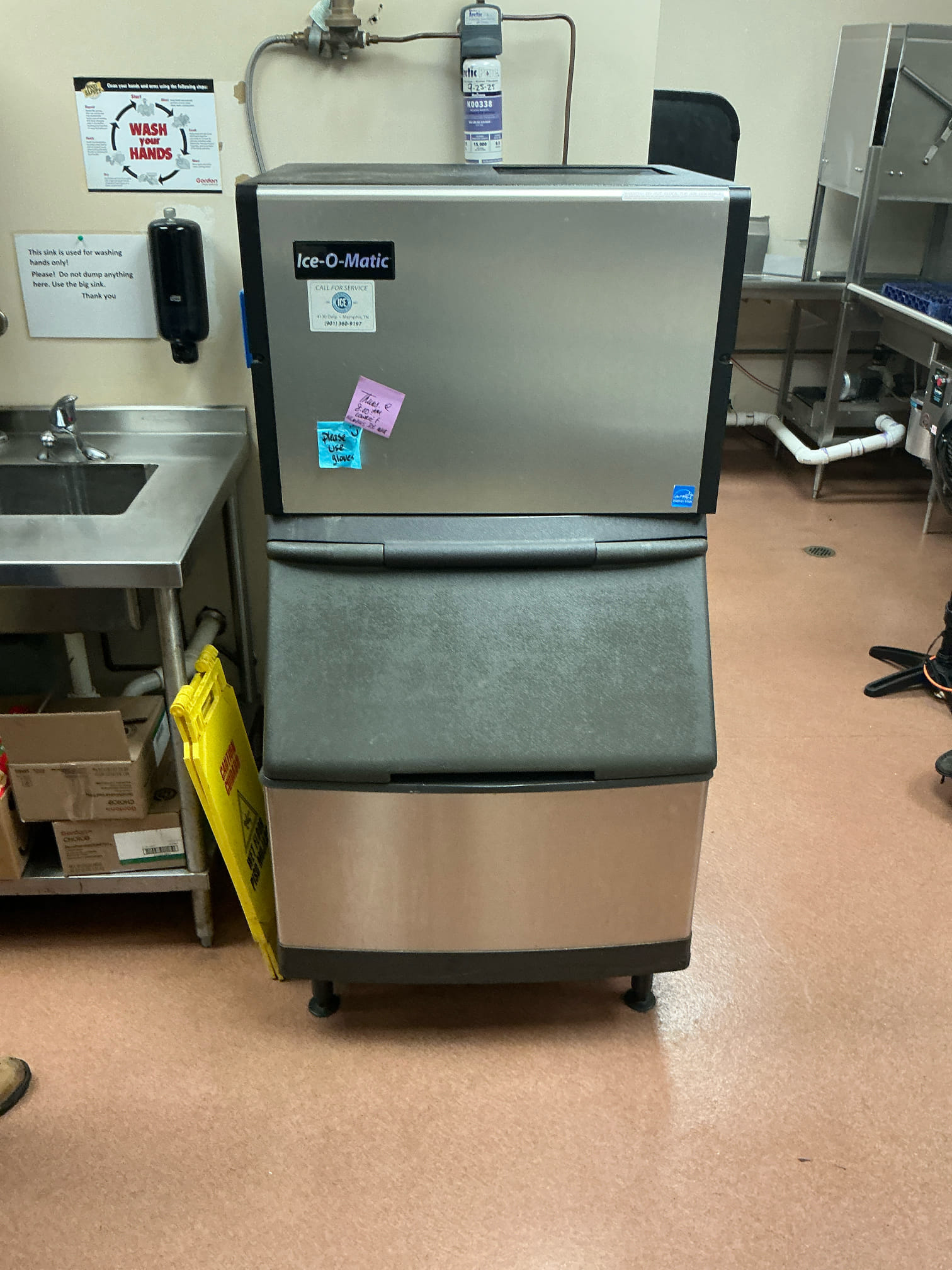
Signs Your Ice Machine Needs Deep Cleaning and How to Spot Them Early
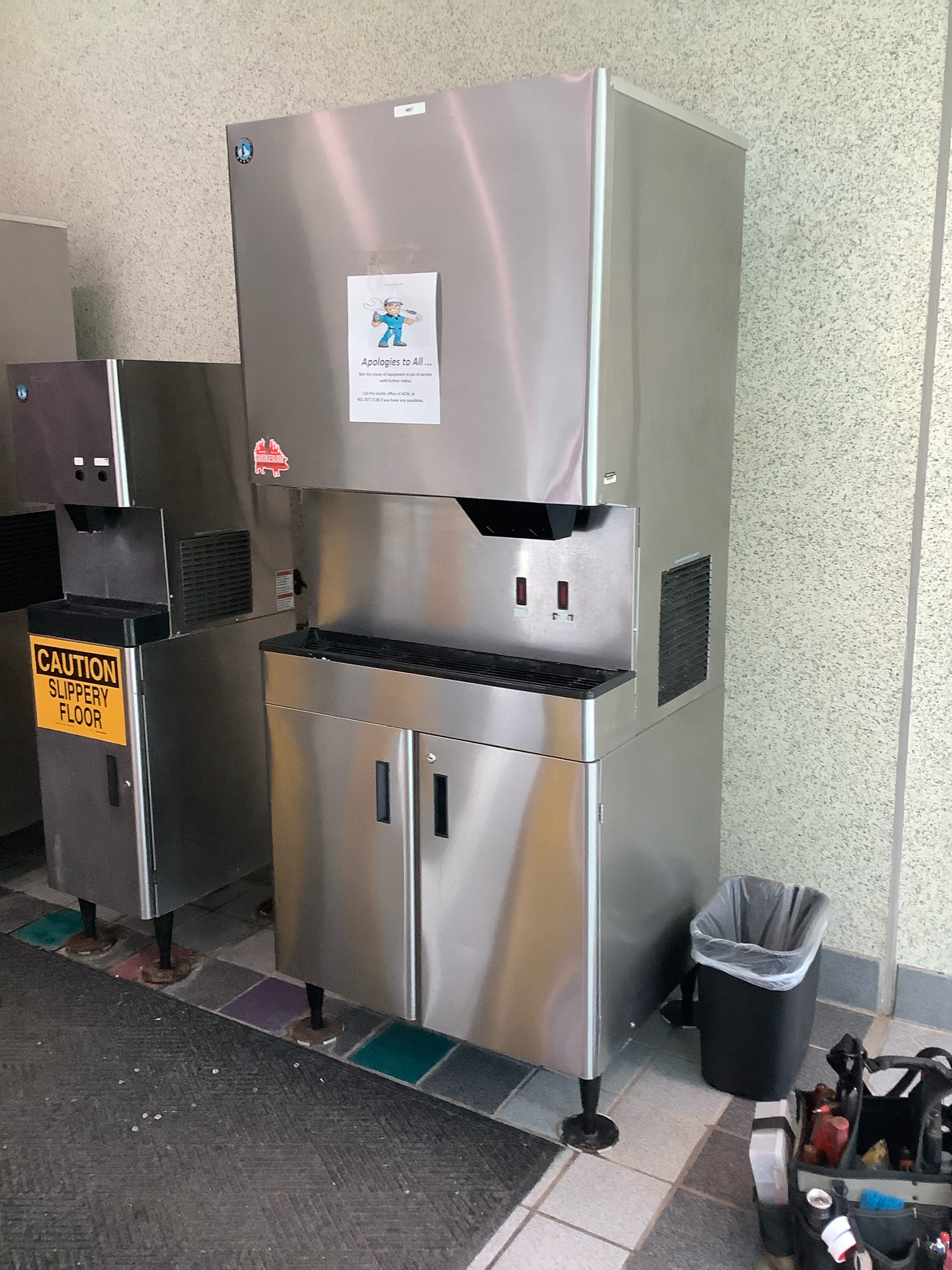
Signs Your Refrigeration System Is Undersized for Your Business and How to Fix It
